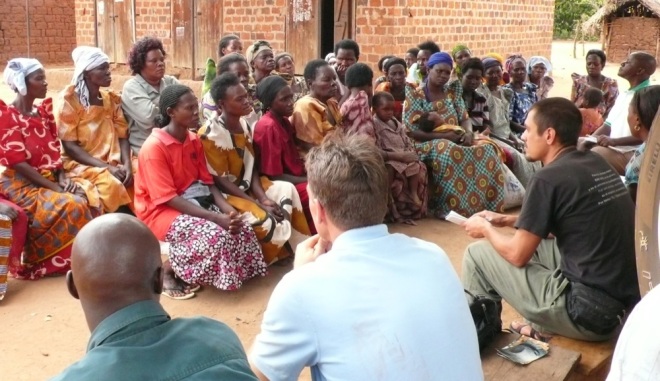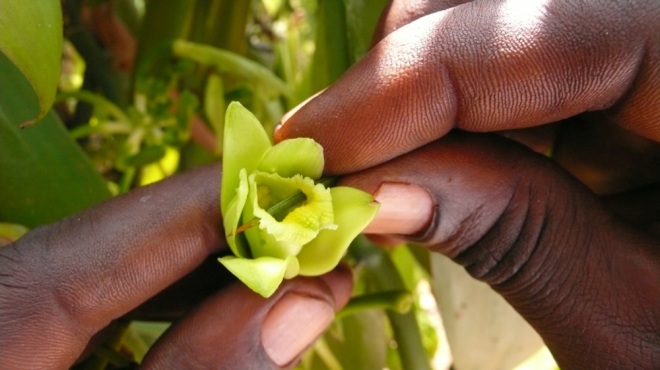
Notes From the Field by Sebastian Africano, TWP’s Deputy International Director:
BEEP! While shocked that my Ugandan cell phone had been able to pick up a text message at 630am, GMT+3 in the outskirts of Gayaza, Uganda, the message that followed was even more unexpected: “A long dry season has been predicted. Expect shortages of food, water & pasture. Store food and water to avoid hunger. – The Office of the Prime Minister.”
I reflected back to the focus group we had held the day before with 30 women – wives of smallholders on the western banks of the Nile – where dust whipped through our conversation for the entire hour, as if to shush their aspirations and keep us from meaningful conversation.

But I know that their opinion is secondary – everything here depends on the rains… and the rains have not come.
The vanilla crop this year is down. Coffee, plantains and cassava aren’t doing much better. Many are worried. But these families have an advocate – in fact several – which through long-term planning, foresight, and decisive action are trying to ease their concerns. UVAN, a top Ugandan exporter of vanilla, and the company that has brought me here, pays a premium for their beans (almost 3 times more than the international price), and provides farmers and their families with extension services in health, livelihoods and environment – a service few companies of this nature would be willing to invest in.

UVAN is supported in their work by almost all of their buyers – it is part of the culture that the founder, Aga Sekalala, has instilled in his business, and he has remained true to it. One of his partners is Fort Collins, CO based Rodelle Vanilla (www.rodellevanilla.com), which happily pays the premium price for the beans Sekalala collects from his network of 9,000 farmers. They also proudly support the extension services that UVAN provides, which teach farmers to thin their shade trees responsibly, to intercrop, to check-in regularly with UVAN’s mobile health services, and to seek support from UVAN’s savings and microloans programs, rather than harvesting prematurely to make a quick return in tough times.
So when Rodelle asked Trees, Water & People to advise them and UVAN as they launched a fuel-efficient cookstoves program for their farmers, we jumped at this unique opportunity.

One week into the project, we have traveled all over this amazing region meeting with women, with other NGOs acting locally, and with a range of stove manufacturers, slowly forming the foundation for what promises to be a far-reaching social and environmental contribution to this broad community of rural families, reducing the firewood they consume and cleaning the indoor air in their kitchens.

Our goals are ambitious for the coming week, but we have had tremendous good fortune in building a strong network for the project, and UVAN’s extension team is one of the most impressive I’ve ever worked with. So when I leave – one week from tomorrow – I know I will leave exhausted, but gratified to have had the opportunity to serve UVAN, Rodelle Vanilla and their network of farmers, and to have contributed to easing one concern that these families have as they wait for the rains to fall.
Read more about this new partnership in this recent article from the Coloradoan.
